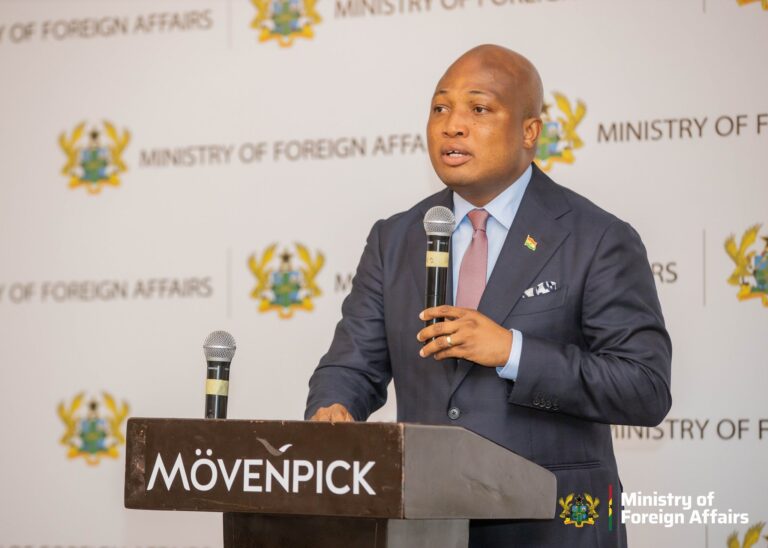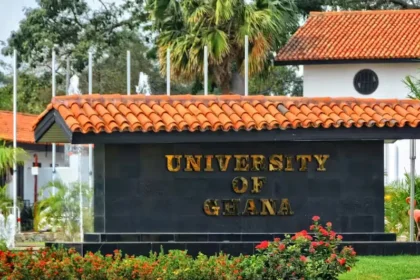In a bold move to strengthen international relations and boost economic cooperation, Ghana has extended its visa-free travel policy to four additional countries: Mozambique, São Tomé and Príncipe, Colombia, and the Commonwealth of Dominica.
The decision, announced in Parliament this week, signals Ghana’s growing ambition to forge stronger diplomatic and economic ties, not just within Africa but across the Global South. Notably, the inclusion of Colombia and Dominica marks a strategic shift toward engaging non-African nations in visa liberalization efforts.
The agreements were presented by Alfred Okoe Vanderpuije, Chairman of Ghana’s Foreign Affairs and Regional Integration Committee, who emphasized that the waivers apply to holders of diplomatic, service, and ordinary passports.
This initiative is about more than just travel convenience,” Vanderpuije stated. “It’s a gateway to deeper collaboration in education, energy, trade, tourism, and agriculture. By easing entry requirements, we’re fostering people-to-people connections that will translate into long-term economic benefits.”
Balancing Revenue Loss with Economic Gains
Some critics have questioned whether the policy could dent Ghana’s earnings from visa fees, but the Foreign Minister Samuel Okudzeto Ablakwa dismissed those concerns.
“Yes, we’re waiving visa fees for these countries,” Ablakwa acknowledged, “but the broader economic gains, especially in trade and tourism, far outweigh any short-term fiscal impact. This is a long-term investment in Ghana’s global partnerships.”
Industry experts agree. Kwesi Owusu, a trade analyst at the Institute of Economic Affairs (IEA) in Accra, noted that visa-free policies often lead to increased business travel, foreign investment, and tourism spending.
“When businesspeople and tourists can enter without bureaucratic hurdles, it encourages more engagement,” Owusu explained. “Ghana stands to benefit from higher visitor numbers and stronger trade links.”
Building on Akufo-Addo’s Legacy, Mahama’s Expansion
This latest move builds on a major policy introduced by former President Nana Akufo-Addo, who, before leaving office in 2025, approved visa-free entry for all African passport holders, making Ghana the fifth African nation to do so, after Seychelles, Benin, The Gambia, and Rwanda.
Since taking office in January 2025, President John Dramani Mahama has not only maintained this policy but expanded it beyond the continent.
Ghana is positioning itself as Africa’s gateway,” a senior government official told The Ghana Report. “By extending visa waivers to strategic partners, we’re strengthening South-South cooperation and opening doors for reciprocal agreements.”
What’s Next? More Countries Could Be Added
Government insiders suggest that more nations, particularly those with strong trade ties to Ghana, could soon join the visa-free list.
Potential candidates include:
- Jamaica & Trinidad and Tobago (strengthening Caribbean ties)
- Indonesia & Vietnam (key Asian trade partners)
- Brazil & Argentina (expanding Latin American links)
“We’re in active discussions with several countries,” the official revealed. “The goal is to make Ghana a hub for global business and tourism while ensuring Ghanaians also enjoy easier travel abroad.”
Ghana’s tourism sector is already reaping rewards from earlier visa relaxations. International arrivals surged by 22% in 2024, with Nigeria, South Africa, and the U.S. leading the numbers.
With the new waivers, industry players expect more visitors from Colombia and Mozambique, two rapidly growing markets.
“Colombians are increasingly exploring Africa for business and leisure,” said Maame Efua Houadjeto, CEO of the Ghana Tourism Authority. “This policy will make Accra and Kumasi must-visit destinations.”
A key hope is that partner nations will reciprocate the visa waivers for Ghanaians. Dominica, for instance, already allows visa-free entry for several African nations, raising expectations that Ghanaians could soon travel there without restrictions.
“We’re negotiating mutual agreements,” Ablakwa confirmed. “Our citizens should also enjoy seamless travel to these friendly nations.”
A Vision for a Borderless Future
Ghana’s latest move aligns with the African Union’s Agenda 2063, which champions free movement across the continent. But by extending the policy globally, Ghana is taking a pioneering role in South-South cooperation.
As one diplomat put it: “This isn’t just about visas, it’s about rewriting Africa’s place in the world. Ghana is leading by example, showing that openness and integration are the way forward.”
With more countries likely to be added soon, Ghana’s “open doors” policy could redefine its role on the global stage, one visa waiver at a time.
What do you think of Ghana’s expanded visa-free policy? Should more African nations follow suit? Share your thoughts in the comments!









